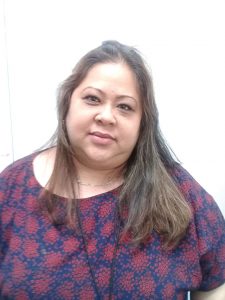‘CUC can no longer be a sacrificial lamb’
Acting Commonwealth Utilities Corp. executive director Betty G. Terlaje said Friday that CUC can no longer be the sacrificial lamb as it is the Commonwealth Healthcare Corp.’s obligation to work out their receivables so they can pay CUC their unpaid utility billings.
At the Senate joint meeting between the Health, Education, and Welfare Committee, and Public Utilities, Transportation, and Communications Committee, Sen. Corina L. Magofna (Ind-Saipan) raised the point that CHCC appears to be making CUC the sacrificial lamb. She pointed out that, as with any other business, when a business conducts its operations, it has to collect.
“And you guys are putting CUC in such a critical predicament where, if they don’t receive the collections, then that puts them at risk of [not being able to purchase] fuel,” she said.
The senator said if CUC does not purchase the fuel, it affects everybody, including the hospital.
Terlaje said she does not think she can tell Mobil Oil to deliver fuel to CUC and not pay for that.
“That’s pretty much in a nutshell what’s going on,” Terlaje said.
The CUC board of directors has rejected CHCC’s proposal to pay $225,000 monthly for utility services, saying the plan is not sustainable.
Including CHCC’s $200,000 monthly average electricity billing, CHCC’s total monthly average billings for all services is $500,000. According to CUC, CHCC’s unpaid arrears for power, water, and wastewater service have now reached $53.6 million as of March 31, 2023.
CUC is asking for a monthly payment of $500,000 plus $225,000—for a total of $725,000 each month. CUC said they will press ahead with disconnecting the hospital by this Thursday, if no payment or settlement is reached.
At the end of the day, Terlaje said, they do understand that CHCC is crying to the Legislature and the government for help.
“While CUC may have concern with some of the proposed solutions by both the House and the Senate, CHCC has no choice but to make the necessary adjustments as applicable, and hope they don’t impact CUC ratepayers significantly,” Terlaje said.
She said they are also requesting the Senate and the government to help CHCC get out of its predicament.
Terlaje pointed out that CUC is also in a critical financial situation as the economy has significantly declined. That has impacted CUC’s finances as well.
For the last 13 years or more, she said, CUC has in good faith provided utility services to CHCC, but for the last several years there has been little or no payments made for the consumption that CHCC has consumed.
“We have tried to work with CHCC over the years to find an amicable solution. And it is the same story we hear each and every time that they cannot pay,” she said.
Terlaje said CHCC brought up in their presentation CUC’s government rate versus the commercial rate.
She said it’s true that CUC’s commercial rate is cheaper, but that’s a rate that was submitted to the Public Utilities Commission and was not contested at the time.
Terlaje said it was the understanding that the government rate for water and sewer was going to be a lot higher, because the government wanted to subsidize CUC.
“It is what it is. And so you cannot just change the rate, even if we wanted to do so,” she said.
Terlaje said that disputing the rate doesn’t relieve CHCC of its obligation because the rates were designed for full-cost recovery. She disclosed that the CUC board has talked about and has a plan to do a new rate study.
Terlaje said they have been asking for a new rate since 2012 for power and 2014 for water.
“But we just can’t reduce it now because the differences would be unaccounted for between the commercial and the government rate that CHCC wants to avail of,” she said.
As she explained how the Fuel Adjustment Charge is computed, Terlaje clarified that the $53 million CHCC owes CUC is not passed on to every ratepayer or in the FAC rate.
Terlaje also mentioned that they are still trying to satisfy the federal court-stipulated orders, which require CUC to collect its receivables.
She said they have received many federal funds for the many deficiencies itemized in the stipulated orders.
“And CUC has put in as much as they can squeeze out for these projects,” Terlaje said.
























